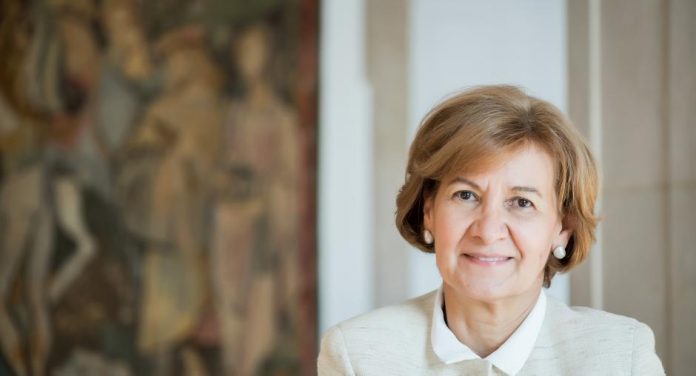Can there be security without media freedom? That is the title of the report that Representative on Freedom of the Media (RFoM) Teresa Ribeiro launched today, on the occasion of the 25th anniversary of the mandate of the OSCE RFoM.
At the launch event, Representative Teresa Ribeiro, together with preceding Representatives, Dunja Mijatović and Miklós Haraszti, as well as several eminent experts on media freedom, discussed emerging challenges to media freedom and security.
“Looking back, we should be inspired by the leaders who, despite the stark divisions at the time, developed a vision and mustered the courage to put in place the foundations of the security system which have served us well for almost fifty years – but are now in jeopardy,” Ribeiro said.
Over the last 25 years, since the OSCE participating States decided to establish the Mandate of the Representative on Freedom of the Media, challenges to media freedom have grown in scale and complexity. Many developments are interrelated and interconnected – negatively affecting the media system and its essential function in society.
“The past 25 years have been a period of tectonic shifts for media freedom, bringing new opportunities and challenges. Many of these are not just a media freedom problem, but they endanger every aspect of comprehensive security,” the Representative said.
Together with nine eminent experts, the Advisory Group of Eminent Experts on Freedom of the Media, the OSCE Representative on Freedom of the Media took a birds-eye view on the media freedom situation and its link to security.
“This exercise necessitated taking a risk. Without critically assessing the notion of free speech and media freedom, we cannot repair its faults or go beyond it,” Ribeiro said. “Challenges old and new, simple and sophisticated, all have mounted up over the years, and while I hold a mandate that is flexible enough to address all these issues, it has become necessary to prioritize the work of my Office, and strengthen our network to more strategically confront the many challenges that lie ahead.”
The Advisory Group includes Mira Milosevic, Joel Simon, Galina Arapova, Ingrid Brodnig, Maria Ressa, Marietje Schaake, Miguel Maduro, Yaman Akdeniz, and Erica Marat.
Throughout the year, the experts met and deliberated three critical questions, which frames the report launched today:
- Is media freedom still relevant for human security today and tomorrow?
- What is the current understanding of the ‘media’ element of the ‘freedom of the media’ concept?
- How can media freedom be safeguarded by intergovernmental organizations, particularly the OSCE?
It is available to read here.
Along with the launching of the report, a virtual exhibition “The Future of Media” that features art created by school children was presented.

